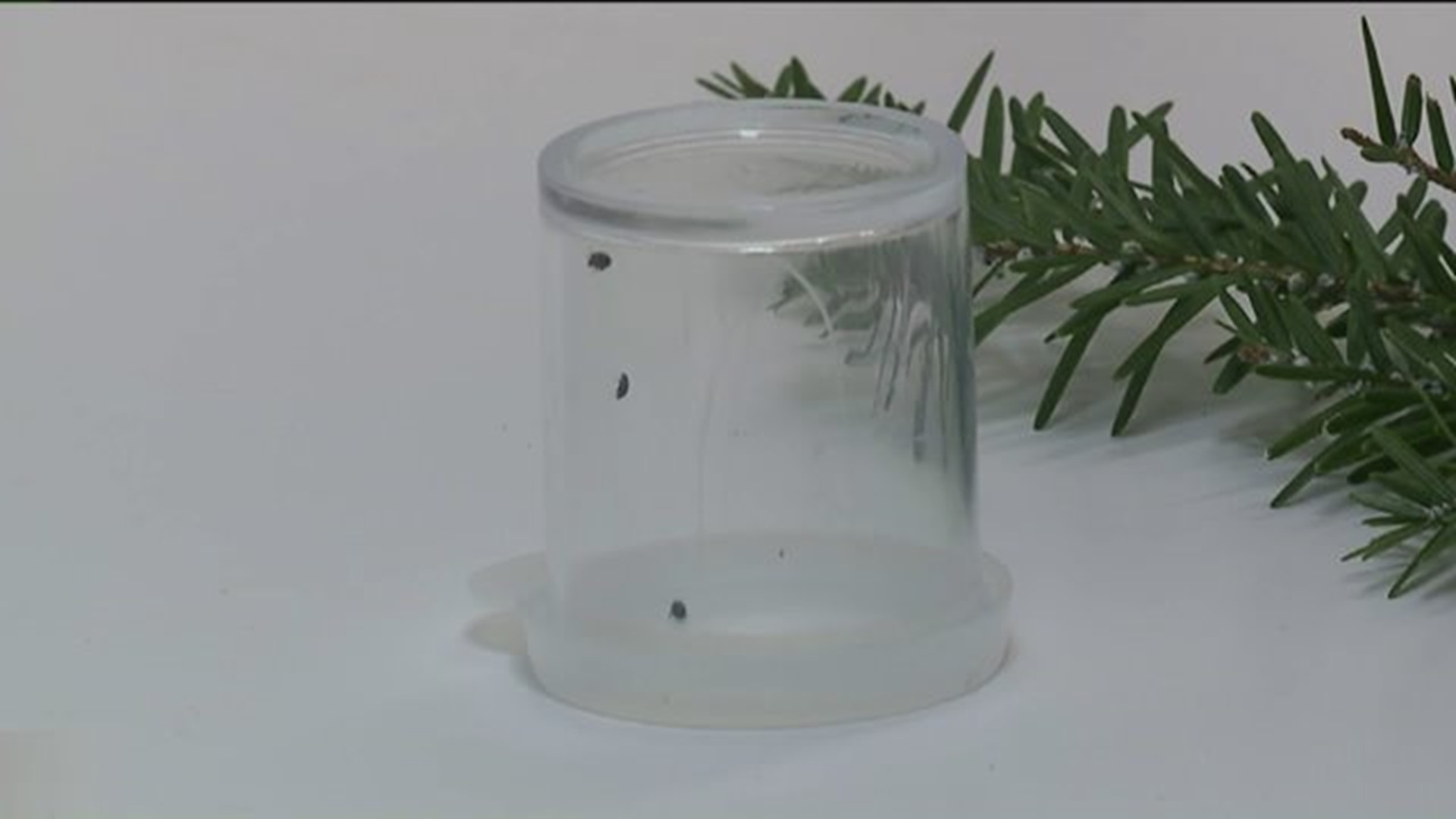SCRANTON -- There is a battle underway to fight a quickly spreading insect that's damaging and destroying Pennsylvania's state tree, the hemlock.
A business in Scranton has found a natural way to destroy the hemlock killer and it involves raising and releasing a different bug.
Workers at a lab in south Scranton are building an army -- an army of beetles.
Crates throughout the facility recreate their battle zone, the branches of hemlock trees.
The enemy is the woolly adelgid, a serious problem for the Pennsylvania state tree. The bug is native to Japan, with no natural foe in the U.S.
"They've actually taken advantage of the warmth and just flourished, so there's more woolly adelgid than ever before," said Jayme Boniewicz.
"Everywhere I've gone this year and part of last year are really, really infested, or just getting started, so we have a real problem here," said Fred Lishman.
But there are woolly adelgid killers -- what's commonly called the ST Beetle, the soldier in the battle to save hemlocks.
The problem is this business, called Tree Savers, has to raise those ST Beetles themselves. They are the natural enemy of the woolly adelgid in Japan, but not common in the U.S.
"These beetles, all they eat is wooly adelgid and they can't even reproduce without eating woolly adelgid, so it's a perfect balance," Boniewicz explained.
After the beetles are raised here, landowners pay Tree Savers to bring them to kill the woolly adelgid on their hemlock trees.
"Everywhere I go, I actually say, 'look at that tree, it's actually sick, we have to do something about it,'" said Eliana Boniewicz.
On one of the properties where Tree Savers put those little beetles to work, the homeowner in Clarks Summit says they did they're job.
"They've done a good job and they're great environmentally."
Ralph Brunori didn't want to use chemicals to kill the woolly adelgid. He said paying $700 for beetles to save and continue to protect nearly a dozen hemlocks was worth it.
"They're really not replaceable," said Brunori about his hemlocks. "Almost 50 years' growth from some of them."
It's a battle of bugs and Tree Savers hopes its beetles win.

